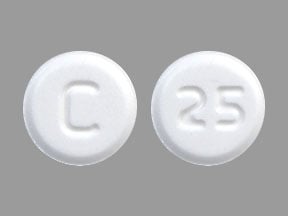My prescription
Edit
25MG, Chlorthalidone (90 Tablets)
Select pharmacy

CVS
$28.91
COUPON PRICE
Albertsons
$22.77
COUPON PRICE
Walgreens
$24.70
COUPON PRICE
Walmart
$46.10
COUPON PRICEChlorthalidone savings card
Show this card to your pharmacist
Albertsons
$22.77
BIN
ID
PCN
GRP
019876
LHA8BAA82E
CHIPPO
LHX
Powered by
Related thiazide-like diuretics prescriptions
More prescriptions for hypertension
Related thiazide-like diuretics prescriptions
More prescriptions for hypertension
Price history for Hemiclor (brand) & Chlorthalidone (generic)
90 Tablets, 25MG
Average retail price for Hemiclor
Average retail price for Chlorthalidone
Average SaveHealth price for Chlorthalidone
Our price history data is based on aggregated prescription data collected from participating pharmacies in America. Our prescription data updates daily to reflect the latest price changes. If you notice a missing data point, it means there wasn't sufficient data available to generate a monetary value for that date.
We analyzed Chlorthalidone prices for (25MG, 90 Tablets) over the last 12 months. The average retail price was $333.52, while the average price using the SaveHealth discount card was $20.95. That's a savings of approximately 93.72% when using our Chlorthalidone coupon.
Compared to the generic version, Hemiclor had an average price of $47.47 over the same time period. With the SaveHealth savings card, Chlorthalidone is 55.87% cheaper on average than Hemiclor.
*Retail prices are based on pharmacy claims data, and may not be accurate when we don't have enough claims.
Chlorthalidone dosage forms
Dosage Quantity Price from Per unit 25MG 90 Tablets $22.77 $0.25 25MG 1 Tablet $9.07 $9.07 25MG 30 Tablets $11.23 $0.37 25MG 45 Tablets $12.35 $0.27 25MG 50 Tablets $12.72 $0.25 25MG 60 Tablets $13.46 $0.22 25MG 100 Tablets $23.63 $0.24 25MG 180 Tablets $30.54 $0.17 25MG 1000 Tablets $55.30 $0.06 25MG 6000 Tablets $200.30 $0.03
| Dosage | Quantity | Price from | Per unit |
|---|---|---|---|
| 25MG | 90 Tablets | $22.77 | $0.25 |
| 25MG | 1 Tablet | $9.07 | $9.07 |
| 25MG | 30 Tablets | $11.23 | $0.37 |
| 25MG | 45 Tablets | $12.35 | $0.27 |
| 25MG | 50 Tablets | $12.72 | $0.25 |
| 25MG | 60 Tablets | $13.46 | $0.22 |
| 25MG | 100 Tablets | $23.63 | $0.24 |
| 25MG | 180 Tablets | $30.54 | $0.17 |
| 25MG | 1000 Tablets | $55.30 | $0.06 |
| 25MG | 6000 Tablets | $200.30 | $0.03 |
| 25MG | 9000 Tablets | $287.30 | $0.03 |
| 50MG | 30 Tablets | $12.15 | $0.41 |
| 50MG | 60 Tablets | $15.30 | $0.26 |
| 50MG | 90 Tablets | $27.45 | $0.30 |
| 50MG | 100 Tablets | $28.50 | $0.28 |
| 50MG | 1000 Tablets | $67.50 | $0.07 |
| 50MG | 9000 Tablets | $397.10 | $0.04 |

